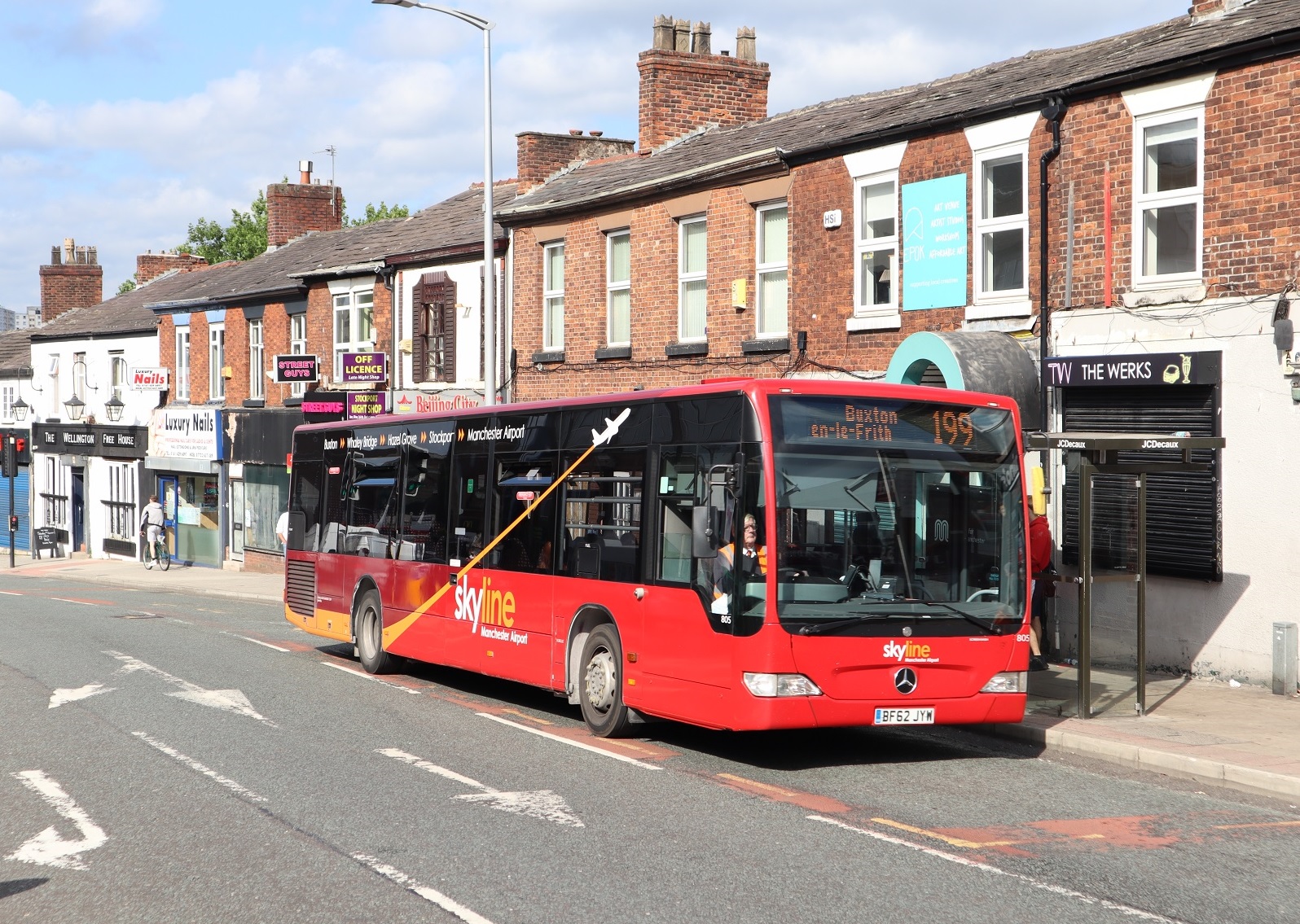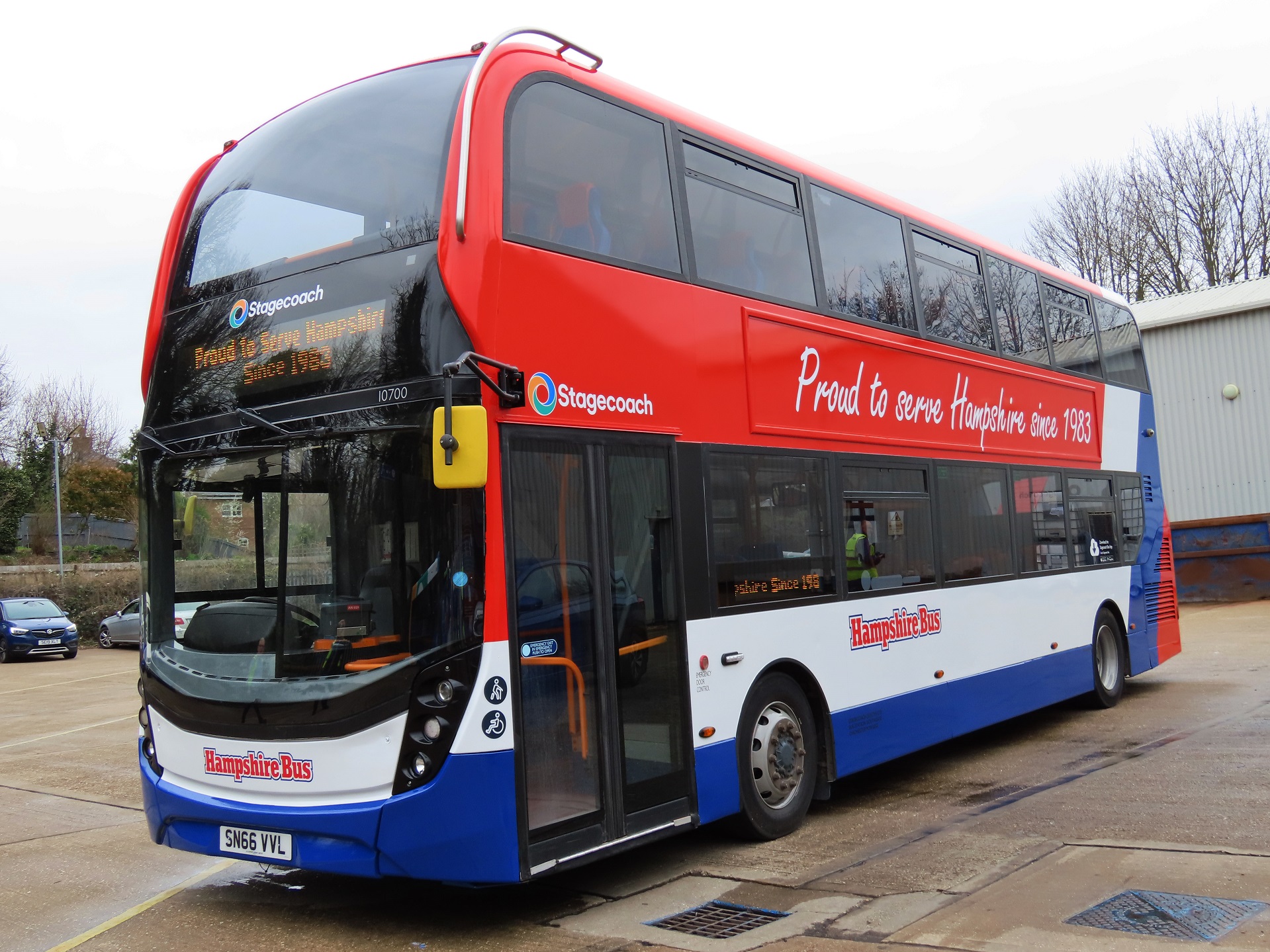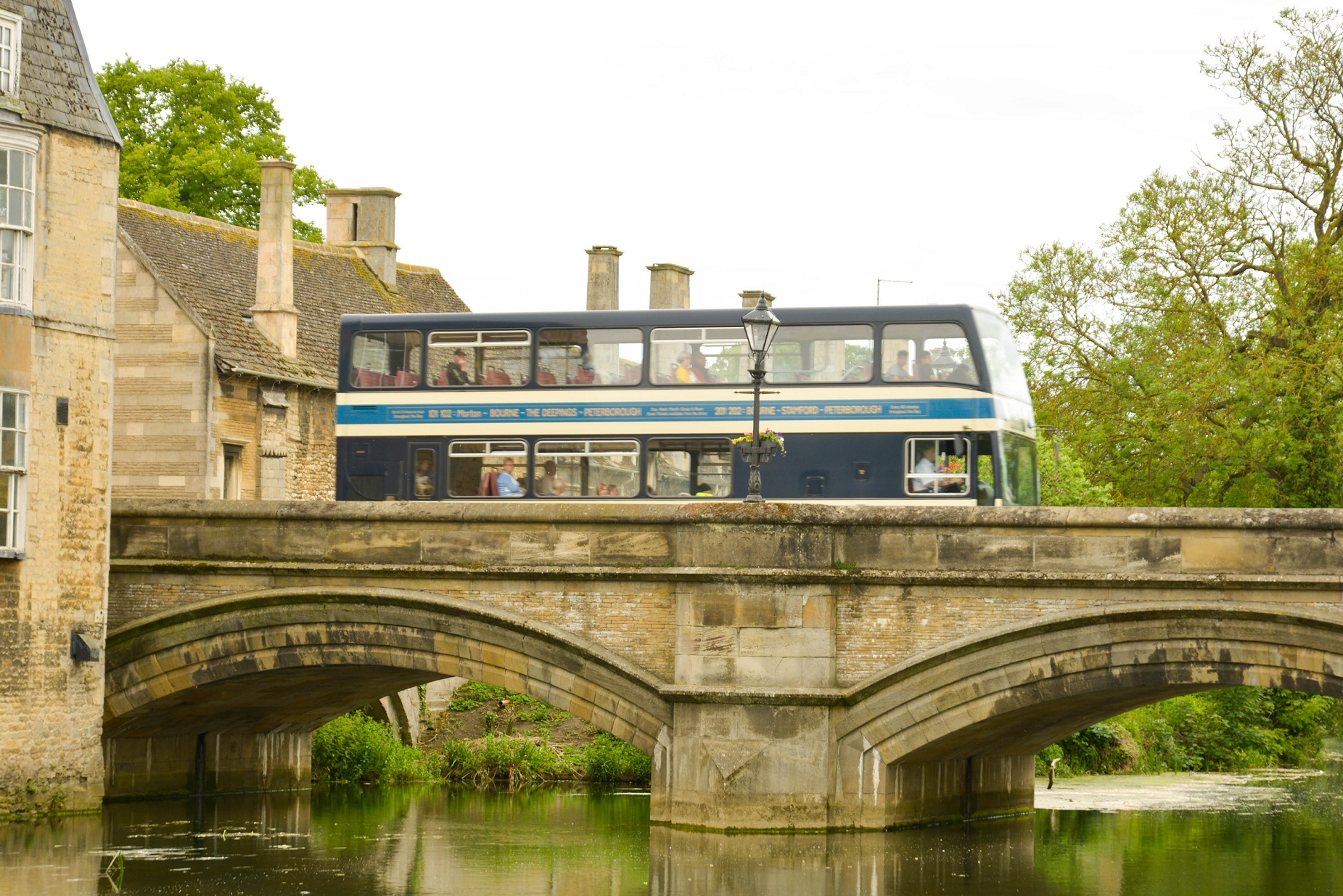Plans for the local service permit regime in Greater Manchester that will be required under bus franchising there have been published by Transport for Greater Manchester (TfGM) on behalf of the Greater Manchester Combined Authority.
While those permits will primarily be required by bus services that cross the border of the franchising area, they may also be needed by others such as some rail replacement, TfGM says. Closed-door transport to schools in Greater Manchester is exempt from franchising and thus will not require permits; nor will services operated under Section 19 or Section 22 provision.
The plan outlined by TfGM is not dissimilar to the London Service Permit regime, and is a product of the Franchising Schemes (Service Permits) (England) Regulations 2018.
The proposals are outlined in a consultation that closed on 28 March. TfGM will later publish a Service Permit Policy Statement and cannot accept permit applications until that task is complete. Additionally, it may not impose conditions on a permit until a notice has been published specifying all of those that it may attach.
TfGM will be required to grant a local service permit if two tests are passed. They relate to benefiting passengers making journeys on local services in the franchised area, and not having an adverse effect on franchised routes, although significant influence will be held by the body through scope to attach conditions to permits.
TfGM will require various information from applicants, which it says will give sufficient scope to assess compliance with the two statutory tests and to decide on any conditions.
Categories of conditions that may be imposed relate to matters such as fares, ticket acceptance, discounted travel for specified groups, service information, and vehicle, customer service and operational standards. TfGM proposes that Euro VI or better will be required on all services operated under permits.
The consultation advises that a minimum of 98 days’ notice should be given when making a new permit application or one to vary or withdraw an existing service. That period may be reduced, particularly in a circumstance where a Traffic Commissioner would allow a short notice registration.
Under normal circumstances a decision on the application would be expected within 28 days. TfGM notes that the period of time between when the permit is granted and the effective date would be a further 70 days, although that could reduce in the case of a legitimate short-notice application.
In addition, service permit applicants are advised to communicate with TfGM “at least 21 days” before making a submission. The body claims that such discussion will allow it to consider any “infrastructure issues.” If observed by applicants, that would take the overall permit procurement process to 17 weeks.
Permits will be issued for up to five years. The proposed fee for a new or renewed permit is £160, with variations costing £65 and withdrawals attracting no charge. Submissions will be made online, with a draft application form available to view on the TfGM website.
A publication date for the Service Permit Policy Statement is not stated. However, with the first franchised services in Bolton and Wigan commencing on 24 September, the process around obtaining permits for in-scope services in that area will need to open by no later than 28 May if the 17-week period is observed.



























